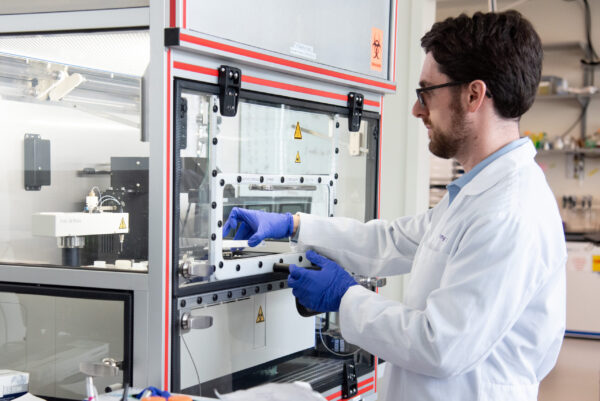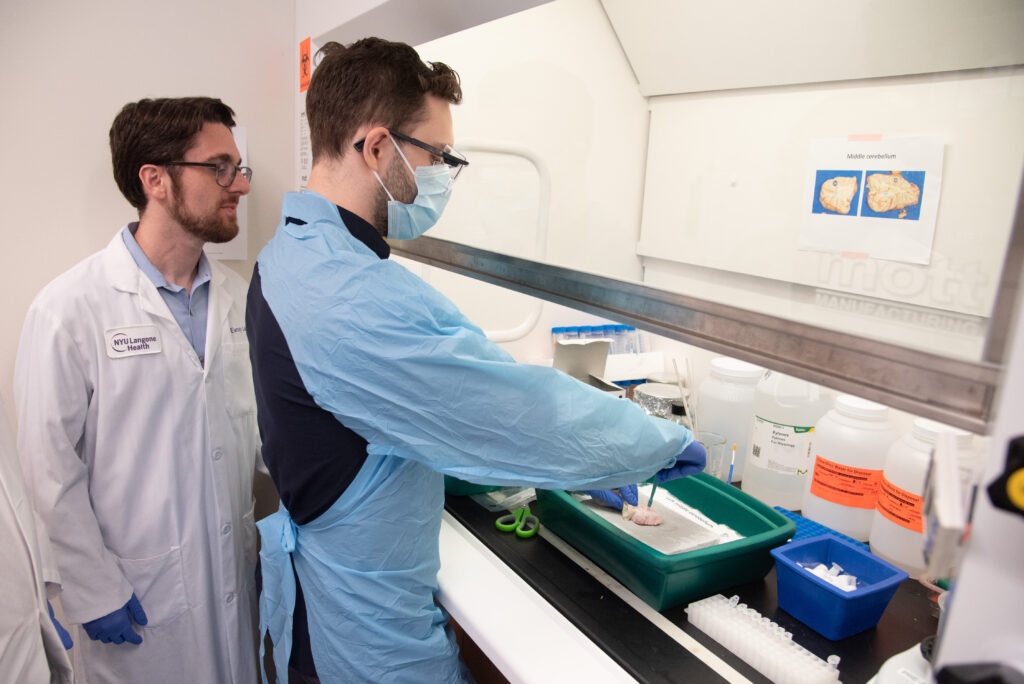Gilad Evrony, MD, PhD ‹ Back To 2023 Winners
2023 Winners
Assistant Professor
Center for Human Genetics and Genomics
NYU Grossman School of Medicine
Vision
Our vision is to discover the origins of brain tumors in order to advance our ability to detect and treat them. By the time someone presents to their doctor with a brain tumor, when and where its preceding mutational events occurred are largely unknown. We are developing new genomics technologies to reconstruct the timeline of mutational events that happen in the earliest stages of brain tumor development, even decades prior to diagnosis. This information will then enable fundamentally new ways of studying brain tumors in the laboratory, with a long-term goal of developing new approaches for early detection and targeted therapies.
Gilad Evrony, MD, PhD, is a physician-scientist at NYU Grossman School of Medicine’s Center for Human Genetics and Genomics, and the Departments of Pediatrics and Neuroscience & Physiology. He received his undergraduate degree in Brain and Cognitive Sciences from MIT and completed an MD and PhD at Harvard Medical School. His graduate research and subsequent work developing new single-cell genomics technologies in neuroscience has been recognized by several awards, including the ‘Eppendorf & Science Magazine Prize for Neurobiology’ and the MIT Technology Review ‘Top Innovators Under 35’ award. He joined NYU after clinical training in Pediatrics at the Mount Sinai Hospital. At NYU, he directs a laboratory developing new genomics technologies to identify the origins of brain tumors and to study basic mechanisms of somatic mutation. He also founded and directs an Undiagnosed Diseases Program that identifies genetic diagnoses for children with severe illnesses that are unsolved despite extensive prior medical evaluations.
Linking Brain Tumors to Their Embryonic and Fetal Lineages

Although many cancers arise late in adult life, it is not known when the earliest cancer-causing genetic mutations occur. It is often assumed that mutations causing adult cancers occur during adult life, but since it takes several mutations to cause cancer, it is possible that the first mutation(s) occur when our bodies develop in utero decades earlier. Mutations occur in each of the billions of cell divisions during development, and these mutations can be inherited by many cells dispersed throughout the body or throughout a specific organ such as the brain. While most of these developmental mutations are harmless, it is possible that some may pose a life-long risk for cancer in conjunction with subsequent mutations.
“The Pershing Square Sohn Prize will allow us to develop a new approach for understanding the relationship between brain development and adult-onset brain tumors. It has long been speculated that the earliest mutational events driving some adult-onset cancers may occur many decades earlier. Linking events
separated in time by decades can be challenging, and this award
will allow us to explore this question with new genomics technologies”

However, there has been no approach to determine which of a tumor’s mutations occurred during development. In this project, we will develop a systematic approach to identify a tumor’s developmental mutations with a focus on glioblastoma, the most common and deadly brain malignancy, and whether any of these contributed to its onset. We will further use these developmental mutations to identify non-tumor cells that are closely related to the tumor, which we term a tumor’s “cousin cells”. These “cousin cells” may reveal the type of cell that gives rise to glioblastoma. We aim to illuminate the previously unexplored links between brain development and adult brain tumors such as glioblastoma to enable new laboratory models, early detection, and treatments. We anticipate our methodology will be applied in the future to many other types of cancer.
“Often, big unknowns remain unanswered because the necessary tools do not yet exist. Innovation, in my view, is focusing on a major open question in science and then developing the tools to answer that question even if they do not currently exist.”